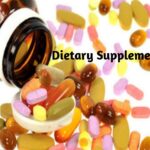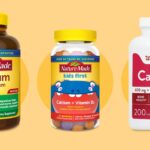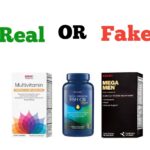Why Is The Consumption Of Dietary Supplements Considered Risky?

Dietary supplements are vitamins, minerals, herbs, and many other products. They can come as pills, capsules, powders, drinks, and energy bars. Some supplements can play an important role in health. For example, calcium and vitamin D are important for keeping bones strong. Pregnant women can take the vitamin folic acid to prevent certain birth defects in their babies. In addition, women who take multivitamin tablets along with calcium supplements seem to have a reduced risk of developing breast cancer, new research suggests.
The supplement industry statistics show that despite the lockdowns and gyms closing down, the nutritional supplement industry is still one of the most prolific industries in the US, as well as worldwide.
People are paying more attention than ever before to their physical appearance and health. Data from the National Health and Nutrition Examination Survey indicates that:
- Among U.S. adults aged 20 and over, 57.6% used any dietary supplement in the past 30 days, and use was higher among women (63.8%) than men (50.8%).
- Dietary supplement use increased with age, overall and in both sexes, and was highest among women aged 60 and over (80.2%).
- The use of two, three, and four or more dietary supplements increased with age, while the percentage of adults not using any dietary supplement decreased with age.
- The most common types of dietary supplements used by all age groups were multivitamin-mineral supplements, followed by vitamin D and omega-3 fatty acid supplements.
- From 2007–2008 through 2017–2018, the prevalence of dietary supplement use increased in all age groups among U.S. adults.
Dietary supplement use is common in the United States. The additional nutrients provided by dietary supplements can help meet recommended nutrient targets but can also potentially lead to excess intakes. This report describes recent prevalence estimates for dietary supplement use among U.S. adults, the distribution of the number of dietary supplements used, and the most common types of dietary supplements used.
Why Is The Consumption Of Dietary Supplements Considered Risky?
If so many people are taking dietary supplements then why is the consumption of dietary supplements considered risky? Some dietary supplements are now considered a health risk because a new study suggests that many herbal remedies and dietary supplements can hurt liver, including some that you can easily buy online or over-the-counter in drug or health food stores. The study also found that injuries linked to those supplements are rising fast, jumping from just 7 percent of all drug-induced liver injuries in 2004 to about 20 percent in 2014.
The greatest risk seems to be with bodybuilding and weight-loss supplements, according to the report, which was published in the Journal Hepatology by Victor Navarro, M.D., a liver expert at Einstein Medical Center in Philadelphia, and colleagues. Those bodybuilding and weight-loss products were responsible for about half of the cases of liver damage linked to supplements, the study found. But the researchers said that some supplements marketed for depression, digestive upset, sexual performance, and other purposes were also implicated.
Most of the supplements contained multiple ingredients, so the researchers weren’t always able to pinpoint the harmful substance. In addition, dietary supplements are sometimes illegally spiked with prescription drugs or other ingredients that aren’t included on the label, making it even harder to identify the culprit.
In the United States, dietary supplements are not regulated as strictly as pharmaceutical drugs. Manufacturers do not have to prove that they are either safe or effective. The U.S. Food and Drug Administration (FDA) doesn’t even determine whether dietary supplements are effective before they are shipped to market shelves.
The FDA does maintain a list of tainted or potentially harmful products marketed as dietary supplements. The worst offenders are usually weight loss aids, “natural” sexual enhancement pills, and supplements targeted at bodybuilders. SEE: List of Tainted or Potentially Harmful Products Marketed As Dietary Supplements





